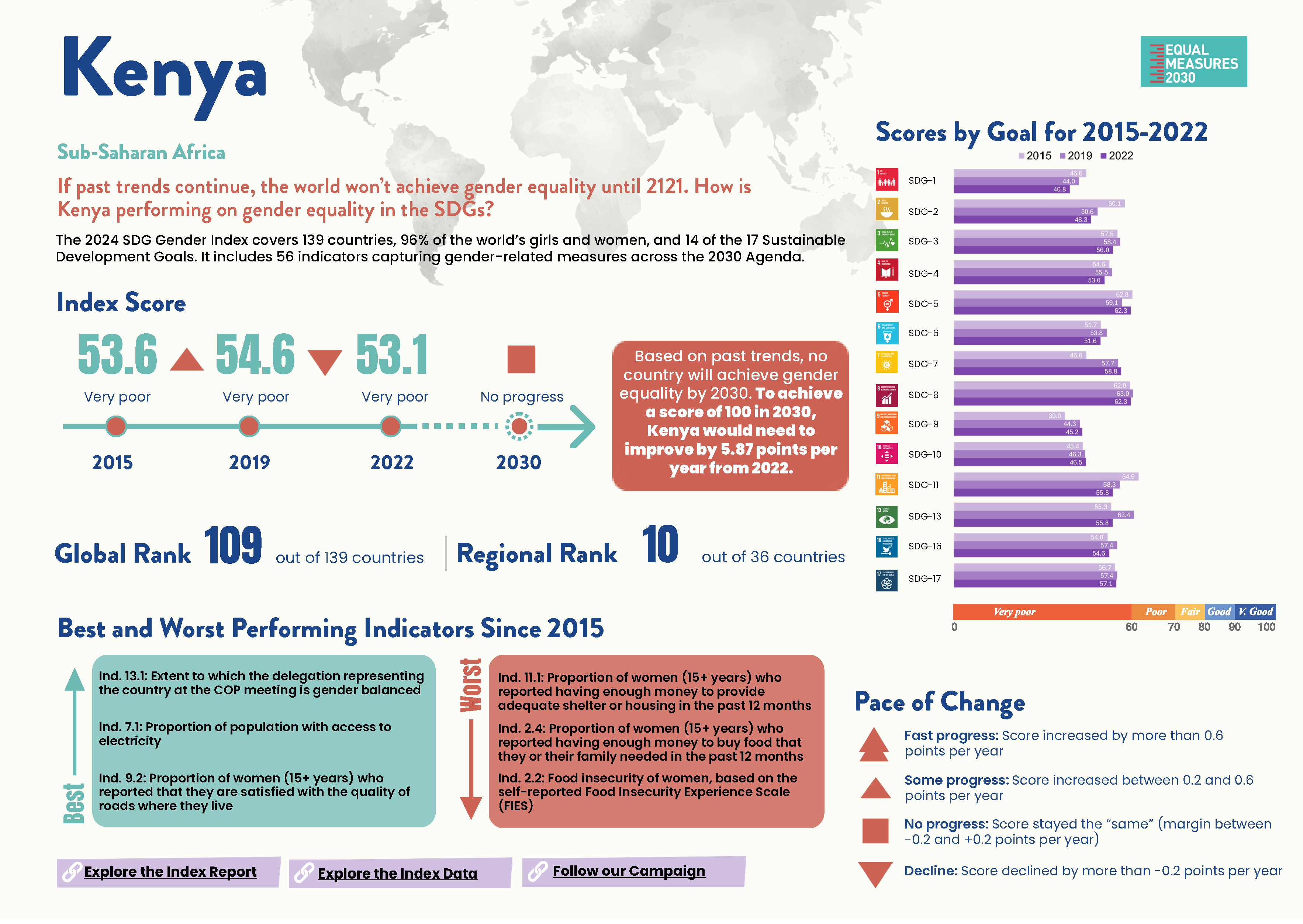Kenya’s urgent battle against femicide
In Kenya, femicide has become a lethal reality that women face daily. In September 2024, Olympic athlete, Rebecca Cheptegei, was set on fire by her ex-partner. In 2022, Damaris Mutua was found strangled to death in her boyfriend’s home. In 2021, Agnes Tirop was stabbed to death by her husband. These three cases from Kenya hit international headlines because all three were competitive athletes, but their stories highlight a crisis that transcends individual tragedies and reflects a systemic issue. At least 500 women were murdered by their intimate partners between January 2016 and December 2023 according to Africa Data Hub, and between 39% and 47% of Kenyan women have experienced gender-based violence (GBV) in their lifetime.
Femicide in Kenya is more than a series of tragic events; it is a systemic issue deeply rooted in misogynistic norms and societal structures that perpetuate violence against women as a method of control and discipline. “The problem is the normalization of gender-based violence and the rhetoric that, yes, women are disposable,” said Njeri wa Migwi, co-founder of Usikimye—Swahili for “Don’t be silent”—a Kenyan nonprofit working with victims of gender-based violence. This normalization reflects a grievous flaw in societal attitudes and the state’s responsiveness to such violence, making it increasingly difficult to break the cycle.
Government response and public outcry
In January 2024, in response to the escalating crisis and mounting public pressure, Mohamed Amin, Kenya’s Director of Criminal Investigations, announced the formation of a special unit to accelerate the investigation process of femicide cases. However, this measure has been met with skepticism. Many activists argue that it is insufficient in a society where blame is often placed on the victims themselves. This sentiment was evident in Senator Tabitha Mutinda‘s controversial suggestion that the murders of young women are a result of their own financial aspirations leading them into dangerous liaisons. These attitudes reveal the uphill battle Kenyan women face in demanding justice and systemic reform.
Women’s movements are pushing back
Despite these challenges, Kenyan women are pushing back. Sparked by the deaths of 14 women in the first month of 2024 alone, an estimated 10,000 women took to the streets in Kenya in January 2024, in what became the largest demonstration against gender-based violence in the nation’s history. This powerful display of unity reflects a long legacy of feminist organizing, including the efforts of groups like the Kenyan chapter of the International Federation of Women Lawyers, and the Coalition on Violence Against Women.
These organisations have led shifts in legal frameworks, and the coalition of demonstrators in January are similarly putting forward demands for comprehensive reforms to combat femicide and gender-based violence including:
- Legal recognition: Femicide should be recognized as a distinct crime, separate from murder, to ensure targeted legal responses.
- Accurate data collection: The Kenya National Bureau of Statistics should be tasked with collecting precise and detailed data on gender-based violence to inform policy and intervention strategies.
- Judicial efficiency: There is an urgent need to expedite femicide cases in the courts to minimize delays that can further traumatize victims and their families.
- Education and training: Public education on gender-based violence and gender stereotypes is essential, along with comprehensive training for health workers, law enforcement officers, and judicial staff.
- Media responsibility: The role of the media in shaping public opinion is critical. It is vital that reporting on femicide is survivor-centric, avoiding sensationalism and respecting the dignity of victims and their families.
- Increased representation: Ensuring that women and feminist advocates have greater representation in government and other decision-making bodies is fundamental for driving change.
Tackling underlying causes of inequality
These reforms are crucial to directly tackle gender-based violence and femicide and provide justice to its victims. However, broader progress is needed on gender equality to tackle the systemic issues that perpetuate GBV and inequality. According to the 2024 SDG Gender Index, Kenya received a ‘very poor’ score of 53.6 out of 100, ranking 109th out of 139 countries globally and 10th out of 36 countries in Sub-Saharan Africa. The Index highlights several critical areas where Kenya is lagging, such as economic security for women, access to justice, and representation in decision-making processes—all factors that contribute to the broader environment of gender inequality and violence.
Notably, the Index points out that a high proportion of women in Kenya (15 years and older) report not having enough money to buy food or provide adequate shelter or housing, which can increase their vulnerability to violence, including femicide. Economic insecurity often forces women into dangerous situations or relationships, making them more susceptible to domestic violence and fatal outcomes. Furthermore, the lack of progress in women’s representation in decision-making bodies and inadequate access to quality infrastructure and services further entrench these vulnerabilities.

The road ahead…
Kenya’s femicide crisis demands urgent, sustained action at the social, political and economic levels. Movements in countries like Argentina and South Africa have already mobilized successfully to tackle gender-based violence, providing powerful examples of how to enact change. In Argentina, the #NiUnaMenos movement sparked nationwide demonstrations and was pivotal in pushing for more stringent laws on gender-based violence. Similarly, in South Africa, the #TotalShutdown movement brought attention to femicide and gender-based violence, influencing policy amendments and enforcement strategies.
These examples highlight that femicide is a global crisis, but feminist movements and grass-roots advocates have been at the forefront of demanding change. The courage and determination of the Kenyan women that took to the streets lights the way forward—not only for Kenya but for other countries facing the same struggles.
Now, it’s time for all of us—governments, communities, and individuals—to join their call. Gender-based violence cannot continue to be a silent epidemic. We must stand together to end femicide, drive societal change, and ensure that women everywhere can live without fear.
—————————————————————————————————————————————————————————————————————————————
This series of blog posts done by Equal Measures 2030 aims to raise awareness during the 16 Days of Activism and the International Day for the Elimination of Violence Against Women, to shed light on this issue and the need for comprehensive and comparable data. Read the other blogs in this series:
- Breaking the Silence: Combating Feminicide and Gender-Based Violence in Indonesia
- Resisting Violence, Reimagining Equality: The Power of Gender Data and Capacity Building
- Why addressing gender-based violence (and counting it) matters for gender equality
- The most unsafe place to be a woman shouldn’t be their home: A closer look at femicide rates in Brazil



